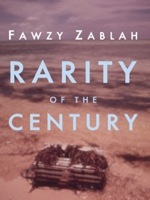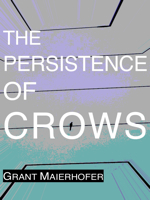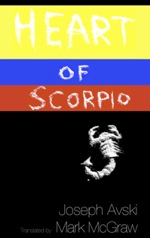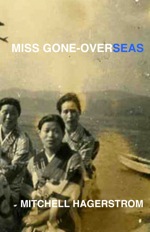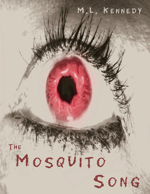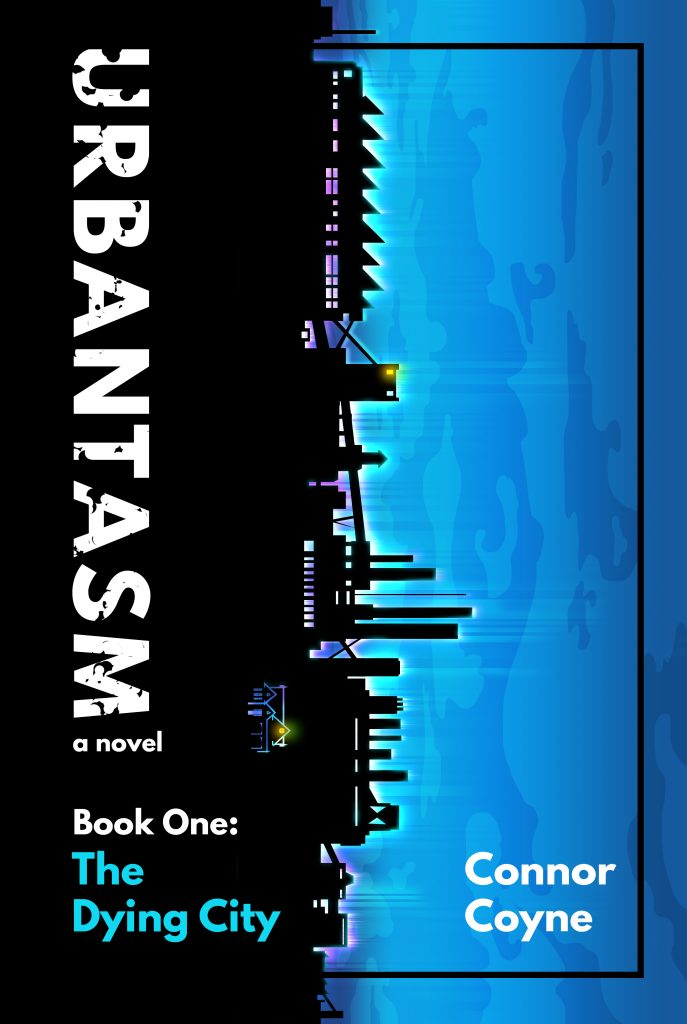
My novel Urbantasm started with hunger.
Not mine.
In 1995, when my 13-year-old best friend took a job two buses away across Flint at the computer store where he made half minimum wage to troubleshoot broken IBMs and Apple 2Es, I was pretty sure he was doing it to supplement his mom’s meager income. I certainly noticed that their pantry and fridge was empty except for the staples easily carted over from the gas station next door: pizza bites, Cheetos, Totino’s, RC pop. Admittedly, I didn’t ask. I was afraid the question would embarrass him. But I wondered how he felt doing homework holding a pencil with hands that have been pricked and cut for hours by metal prongs and copper wires.
Another friend lived a few blocks away from this computer store. It wasn’t his parent’s but his grandparents’ house. He slept in the unfinished basement and stacked his CDs on a spare wooden shoerack that he stood in front of the hot water heater. He put up pictures of Tori Amos – his favorite singer and one of mine – on the wood panel and cinder-block walls. It was a little strange going down there; he had the best fashion sense of anyone I knew and aspired to modeling and glamour. The last thing you expected from his bedroom was this gloomy and windowless space. Despite all of this, all of his friends were glad that he had this room at his grandparents, who fed and cared for him. His mom was a junkie and his dad was a crackhead. When our friend wasn’t at his grandparents’, we knew he was usually in too deep.
In 1995, it seemed like most of my friends were barely hanging on. One friend regaled me with stories about how her brothers caught and tortured animals, their ghoulish behavior overshadowed by their father’s daily homicidal threats against their mother. Other friends ping ponged between the houses of relatives and neighbors so rapidly that nobody knew where they were. An acquaintance got shot in the neck by rival gangbangers. I was extremely self-conscious that I was watching all this from a warm home with a well-stocked kitchen, a stable home in a nearby suburb. It was just a few miles from the City of Flint, but it might as well have been light-years away.
Lest you think our lives were completely defined by violence and poverty, we were acutely aware of the beauty around us. Most of us auditioned for plays and classes at the local youth theatre, a place where kids and adults of many backgrounds mingled, learned scripts by heart and poured out our own feelings without self-consciousness or self-censure. We practiced love and passion. We dreamed of escapes and admired the interplay of weather – a storm or a sunset or a silent snowfall – over the wrecked city.
Around New Years, 1996, I was reading an abridged version of Victor Hugo’s novel Les Misérables. Even though this version cut two-thirds of the text, I was still overwhelmed by the magnificent sprawl of the book. Hugo took disparate subjects and images — the attrition of French convents, a giant abandoned wooden elephant at the center of Paris, the defeat of Napoleon at Waterloo — and wove them together into a passionate argument for social progress and a spirit of fraternity.
“Citizens,” he wrote, “the nineteenth century is great, but the twentieth century will be happy.”
At which point I snorted and had to put the book down for a minute.
Among the glories and the glorias of the text, that assertion seemed ridiculous. It didn’t stand against the realities my friends were experiencing that year. But it pointed a way forward. If these lives are beautiful and important, it seemed to say, then your lives are beautiful and important. If these stories are worth telling, then so are yours.
As thinking animals, we tend to put things into categories. It isn’t inherently ridiculous; categories help us know how to deal with things. They help our brains keep us from eating a Chevy pickup or driving a French omelet. But reality is under no obligation to conform to the tidy categories we devise to ease our interactions with the world.
It makes sense, then, that a story can be many things.
As a story, it attempts – typically through language – to transmit an experience from a speaker or writer to a hearer or reader. And, we generally assume, most stories have salient qualities that stand out from other varieties of narratives and accounts: a cast of characters, a setting in time and place, a plot that likely involves a beginning, middle, and end, and so on.
But a story can be many other things. It can be a polemic or a documentary. It can be a poem or a rant or a dirge or a rousing cheer. Picture the brass section of a marching band, standing outside an inner city school, scheduled to close forever at the end of the year, stamping on the pavement while cheerleaders kick up their muscled thighs and football players in dented helmets puff their steam into a cold air. A story can do that too. A story can even be a prayer.
In 1996, when I finished and put down Les Misérables and started drafting Urbantasm, it was all those things, but especially a prayer: “My God, my God, why have you forsaken us?”
And the hunger in that prayer, my feverish demand for answers and the strange paths my friends’ lives took as we became adults, either achieving escape velocity or succumbing to the gravitational pull that was Flint, kept me working on a novel that, for me at least, had become much more than a novel.
It had to be done right. It had to be made perfect. But nothing made by humans can be perfect. It was, then, my responsibility to do the best I could. To witness, to pray, to write with every cell in my being. And I spent more than twenty years scouring my memories, talking about these painful questions, learning the craft of writing, of storytelling, of searching and scribing, of trying to finish and knowing that my best efforts to capture our realities – their beauty and their horror – were doomed to a flawed execution.
And in 2016, I finished.
The publishing industry isn’t evil.
It isn’t filled with talentless hacks or valueless neophytes, as some have argued.
It is, however, an industry. Any industry, in any milieu, is going to respond to market forces, and in a market-oriented society, like ours, it is going to approach publishing – to approach writing – with an eye for profit maximization. A profit-maximizing industry is going to have at best a provisional interest in a story as a prayer or as a dirge or as a cheer or as a reckoning. As a witnessing. These are doomed to be ancillary considerations. They will never come before what industry views are more elemental concerns: is this worth the paper it is printed on, the time of its editors and book designers, will it sell with a reading public, and will it even be read?
And so, when I began pitching Urbantasm to agents and publishers after twenty years of work, I heard a lot about the categories it didn’t fit into.
It was written in an often avant-garde style, which clearly signals adult readers, yet the characters are twelve- and thirteen-year olds. Agents and publishers told me adults were uninterested in characters of this age.
It features twelve- and thirteen-year-old characters, yet publishers told me that young-adult novels couldn’t say the word “fuck” so often (though they had little to say about the rampant sexism, racism, and homophobia these same characters perpetrate and experience).
They were concerned first at the length of the novel, and then, when I split the book into four-installments, that no sane publisher would publish a serial novel from an unknown author in which the first volume did not stand alone.
After almost two years and 250 queries, it became obvious that this book would not be published by a traditional publisher unless I made fundamental changes. Changes that had nothing to do with writing quality and everything to do the categories publishers thought their readers accepted.
It became obvious that this book would only be published the trad route if I fundamentally altered its character.
I said “no.”
Well, actually, I was sitting on my back porch at the time and I said “fuck that.”
Urbantasm is being self-published. Through a lot of luck and a bit of resourcefulness, not to mention the energy and loyalty of my friends – the same friends this story is for and about – the book is being published in four installments. So far, sales aren’t spectacular, and Barnes and Noble – even the Flint branch – doesn’t take me seriously, but I am satisfied.
Matthew 6:5 states, “when you pray, do not be like the hypocrites, for they love to pray standing in the synagogues and on the street corners to be seen by others. Truly I tell you, they have received their reward in full.”
I have told the story I needed to tell in the way it needed to be told. Everything else is noise and distraction. When you’re praying, you don’t fuck around.
 AUTHOR BIO:: Connor Coyne is a writer living and working in Flint, Michigan. His new serial novel, Urbantasm, has been praised by Nebula-nominee as “a novel of wonder and horror.” Coyne’s other work includes his novels Hungry Rats and Shattering Glass and a short story collection titled Atlas. Coyne’s essay “Bathtime” was included in the Picador anthology Voices from the Rust Belt. His work has been published in Vox.com, Belt Magazine, Santa Clara Review, and elsewhere. He maintains websites at Urbantasm.com and ConnorCoyne.com and can be reached by email at connor@connorcoyne.com
AUTHOR BIO:: Connor Coyne is a writer living and working in Flint, Michigan. His new serial novel, Urbantasm, has been praised by Nebula-nominee as “a novel of wonder and horror.” Coyne’s other work includes his novels Hungry Rats and Shattering Glass and a short story collection titled Atlas. Coyne’s essay “Bathtime” was included in the Picador anthology Voices from the Rust Belt. His work has been published in Vox.com, Belt Magazine, Santa Clara Review, and elsewhere. He maintains websites at Urbantasm.com and ConnorCoyne.com and can be reached by email at connor@connorcoyne.com



